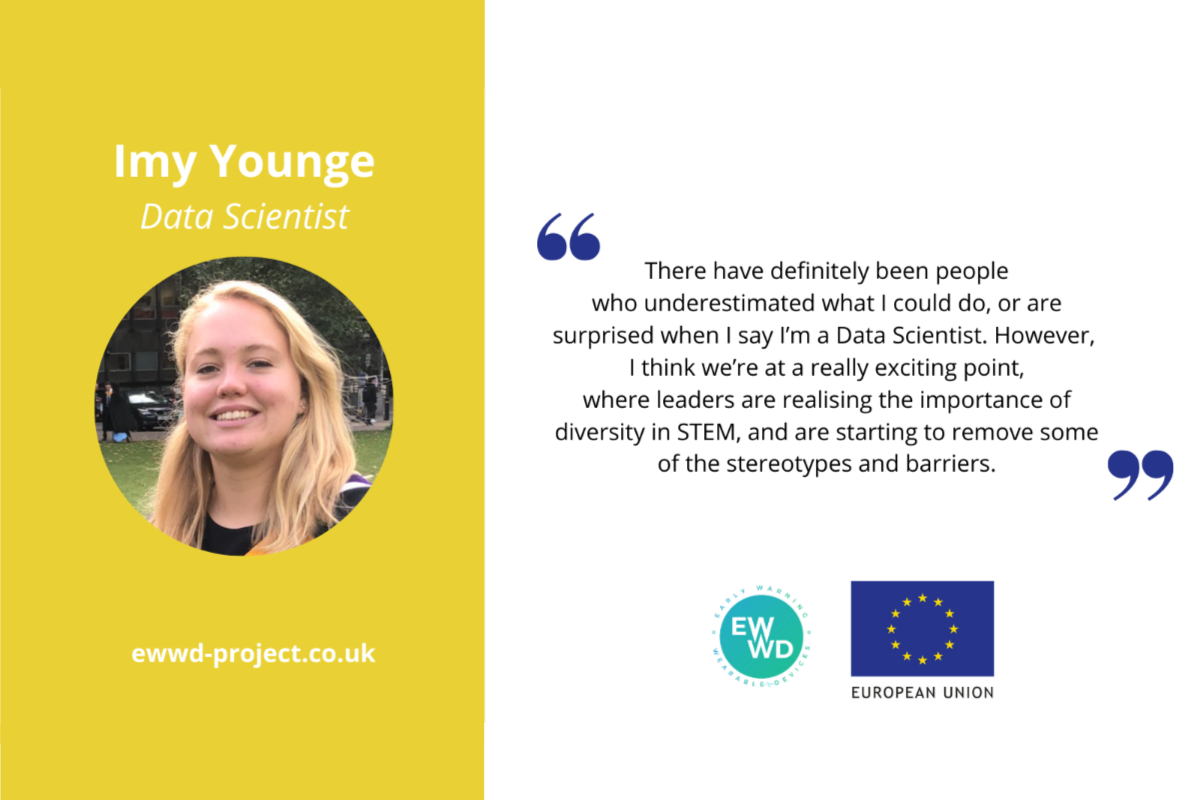EWWD
Spotlight on Data Scientist, Imy Younge
—

What was your degree in, and what did you enjoy studying most at school?
My BSc was in Biological Sciences, and my MSc was in Health Data Analytics and Machine Learning. At school, my favourite subject was definitely biology, as the more I learnt about it the more sense it made to me. I also enjoyed maths and history, and got quite involved with sport – I enjoyed a mix of things I think.
What made you choose to study those subjects, and what areas were you most focused on?
I chose to study biology because it was so broad – from molecule interactions to global ecosystems. My biology thesis used statistics to work out what season is best for studying insects in the Brazilian rainforest. I enjoyed the stats but wasn’t convinced that studying insects was the future for me, so I moved to medical statistics for my Masters. Most of the Masters focused on predicting disease from genetics and blood test data, so I wanted to try something completely different for my final project. My final thesis used machine learning to assess whether the NHS uses the data it has on hospital performance efficiently, and if current ratings of hospitals are actually representative. I really enjoyed it, and it made me motivated to help improve healthcare.
What is your daily work at Hex like?
The Data Science team start each day with a meeting, where we share progress, plan what’s next, and talk through any problems we’re having. After that, each day is different. I can be working with researchers at Cardiff University, improving our machine learning models, writing a paper, learning about a new approach we want to try… it’s pretty varied!
How does it feel to be a woman in STEM? Have there been any moments where you felt at a disadvantage?
There have definitely been people who underestimated what I could do, or are surprised when I say I’m a Data Scientist. However I think we’re at a really exciting point, where leaders are realising the importance of diversity in STEM, and are starting to remove some of the stereotypes and barriers. I’ve been lucky enough to work with lots of people dedicated to increasing diversity in STEM, and there are an ever-increasing number of female STEM role models, which is great to see. We’ll get there, but there is always more that can be done.
What advice would you give young girls interested in the field?
Study the things you enjoy the most regardless of what other people think! Take every opportunity to get involved in things, and reach out to people in fields you are interested in – it is their passion too.